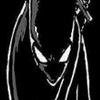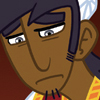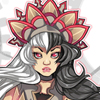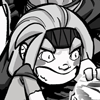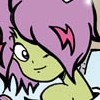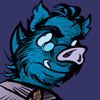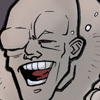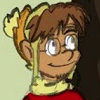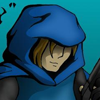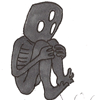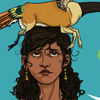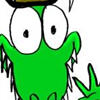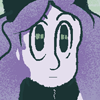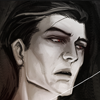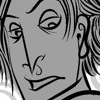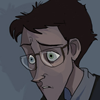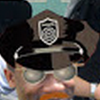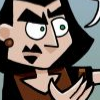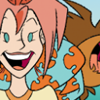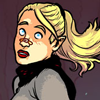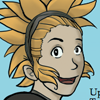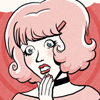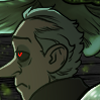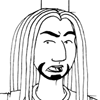Category Archives: literary adaptations
The Webcomic Overlook #126: Wendy Pini’s Masque of the Red Death

I became a comic fan in the early 90’s during the debut of Jim Lee’s X-Men. Thanks to my nerdy, obsessive nature, I ended up taking a strong interest in the history of comics. I used to hope up at the Detroit Public Library, head up the stairs to the second floor (which had some fantastic Diego Rivera murals that I didn’t appreciate at the time), and pored through various books about comic book history. I learned about obscure, now-forgotten heroes, reveled in pages devoted to Will Eisner’s The Spirit, and took a passing interest in the Kitchen Sink Comix movement of the 1970’s.
When the book got to the 80’s, a couple of names stood out prominently: the husband and wife team Wendy and Richard Pini. Their comic, Elfquest, was the standard bearer for indie comics of the 1980’s. It was THE sterling and unassailable example that creators didn’t need to sell their souls to the Big Two to create a comic book hit.
However, I never got into Elfquest much. I tried reading the books, which were also available in hardcover at the library, but they weren’t for me. I think the books were successful because they pursued the female comic reader market before manga proved to everyone that they were commercial viable. While a noble pursuit, these delicate fantasy comics filled with dewy-eyed pretty boys were definitely not for me, who longed for nothing more than to read page after page of muscly guys punching each other.

Still, I was filled with giddy excitement when, one day while browsing through the “webcomic” entry of Wikipedia, I ran across Wendy Pini’s name attached to an online adaptation of Edgar Allan Poe’s The Masque of the Red Death. Ah, I thought, the perfect gateway into the world of Wendy Pini! I loved Poe’s original short story, and I was excited to see how that would translate to comics.
Imagine my surprise when the webcomic bore less resemblance to Poe’s Masque of the Red Death and more similarities to Anne Rice’s The Claiming of Sleeping Beauty. That is to say that Rice, writing under the name A.N. Roquelaure, mainly used a well known story as a framework for erotic literature about bondage, domination, and sadomasochism.
In case it hadn’t bee quite clear to you yet, Wendy Pini’s Masque of the Red Death is similarly and adults-only affair. The review itself doesn’t really go overboard into NSFW territory, but, still, proceed at your own caution.

Who Are You?: An interview with Ulysses “Seen”‘s Robert Berry
 Adapting a book to fit the comic/graphic novel/sequential art form is a fairly daunting task. So you’ve got to hand it to anyone for adapting one book which, on face value, doesn’t seem like a natural choice to lend itself to a comic adaptation: James Joyce’s Ulysses. Yes, the very same book that’s probably been the subject of the most “impenetrable novel” jokes outside of War and Peace. Who would dare such a foolhardy challenge?
Adapting a book to fit the comic/graphic novel/sequential art form is a fairly daunting task. So you’ve got to hand it to anyone for adapting one book which, on face value, doesn’t seem like a natural choice to lend itself to a comic adaptation: James Joyce’s Ulysses. Yes, the very same book that’s probably been the subject of the most “impenetrable novel” jokes outside of War and Peace. Who would dare such a foolhardy challenge?
Rob Berry, that’s who.
With Ulysses “Seen”, Berry bravely undertakes the task of adapting the 265,000 word novel for the internet. It turns out, though, that the webcomic form is but the first step. Recently, the Ulysses “Seen” app went live at iTunes, taking advantage of the latest in cutting edge technology to bring the acclaimed classic into the new Digital Age of Mobile Technology.
Lately, he’s been working on a new web-based media project with Gary Epting on Story Clouds, which will be seeing some fresh material following Bloomsday.
Rob and I got in touch via Twitter first and, after some rather enthusiastic exchanges, later by e-mail. I asked him about Bloomsday, his favorite scene from the novel, and his experiences with iTunes.
1.) So what is it you do on Bloomsday? Do you dress in any wacky outfits? Visit favorite haunts?
Well, I’m not much of a “dress-up-kinda-guy” but I do collect costume stuff for most of the projects I work on. Still got a full Captain America suit from a series of paintings I made 15 years ago. For Ulysses “Seen” I’ve been collecting hats just to get the look right. But I’d never wear them in public. Nothing says “art geek” like wearing a bowler on Bloomsday and, well, people get enough of that idea when the hear me talk. No sense broadcasting louder.
Berry’s Captain America Pagliacci
This Bloomsday I’ll be in NYC for a lot of fun Joycean events ending with Symphony Space’s 29th Bloomsday on Broadway. And I suspect there will be some drinking involved at some point as well.
2.) Is there any scene in Ulysses you could say stuck out to you or you could call your favorite?
There’s a moment when Mr Bloom is having his lunch and thinking about the first time he made love to his wife. Thinking about a picnic long ago on a hilltop, about them kissing and passing food to one another in that kiss, between there mouths, while he eats his own modest lunch now alone in pub. He knows his wife’s lover will visit her in few short hours and feels there’s nothing to be done about this. And he watches “stuck on the [window]pane two flies [buzzing], stuck.”
To me this one has always been a really vivid image that works exactly the way comix do and film does not. The idea of visual information combined through there juxtaposition but not necessarily connected in time.
3.) Joyce fans are pretty hardcore. What’s been the reaction of Joyceans to your adaptation — positive or negative?
Joyceans can be, in their own way, much more dogmatic than Trekkies. Cracking the code of Joyce’s puzzles within the book is tricky business, so really nuanced arguments prevail about what the author is really telling us. People feel an involvement with text once they’ve made it through and an investiture in telling others what they may’ve missed. It’s quite natural, really. There’s so much information in there for people to dig through.
But Joyce, plagued by terrible eye problems, is often cited as being a very “non-visual” writer. There aren’t a lot of flowery descriptive passages in there but a lot of room for argument. So most all of the comments I get from Joyceans are actually really a help to me for purposes of research. They really do know this novel waaaay better than I and I’d never be able to do it without their help and interaction.
That being said, I’d probably describe their reaction as “supportive but cautious.” Oh, and maybe “sometimes sermonizing.” Most want to encourage me in doing this, but also feel I’ll never make it or, worse yet, go horribly astray from the true path.
Read the rest of this entry
The Webcomic Overlook #93: Ulysses Seen

Over the years, The Webcomic Overlook has offended many different kinds of people: conservatives, gamers, furries, Apple users, Lost Cause proponents, anime fans, and Bobby Crosby, to name a few. Ah, what a fruitful two years it’s been. Just so you know, I’m not sitting around in my Cave of Hate trying to figure which people to tick off. El Santo doesn’t roll that way. However, reviews are reviews, and getting a rise out of people fuels our passion, no matter how tangentially related it is to the subject matter.
That said, I’m at least a little bit hopeful that today’s review will be the sort that brings in more literary nay-sayers. You know, just to see if I can class up this blog.
“Whatever,” you’re saying. “It’s not like you’re bagging on James Joyce.”
Ah, monsieur… but I am! For James Joyce has deigned to enter the world of webcomics. Today, I’m reviewing Ulysses Seen, illustrated and adapted by Robert Berry, laboriously annotated by Mike Barsanti, and written by some bespectacled Irish dude who’s been dead since 1941.





